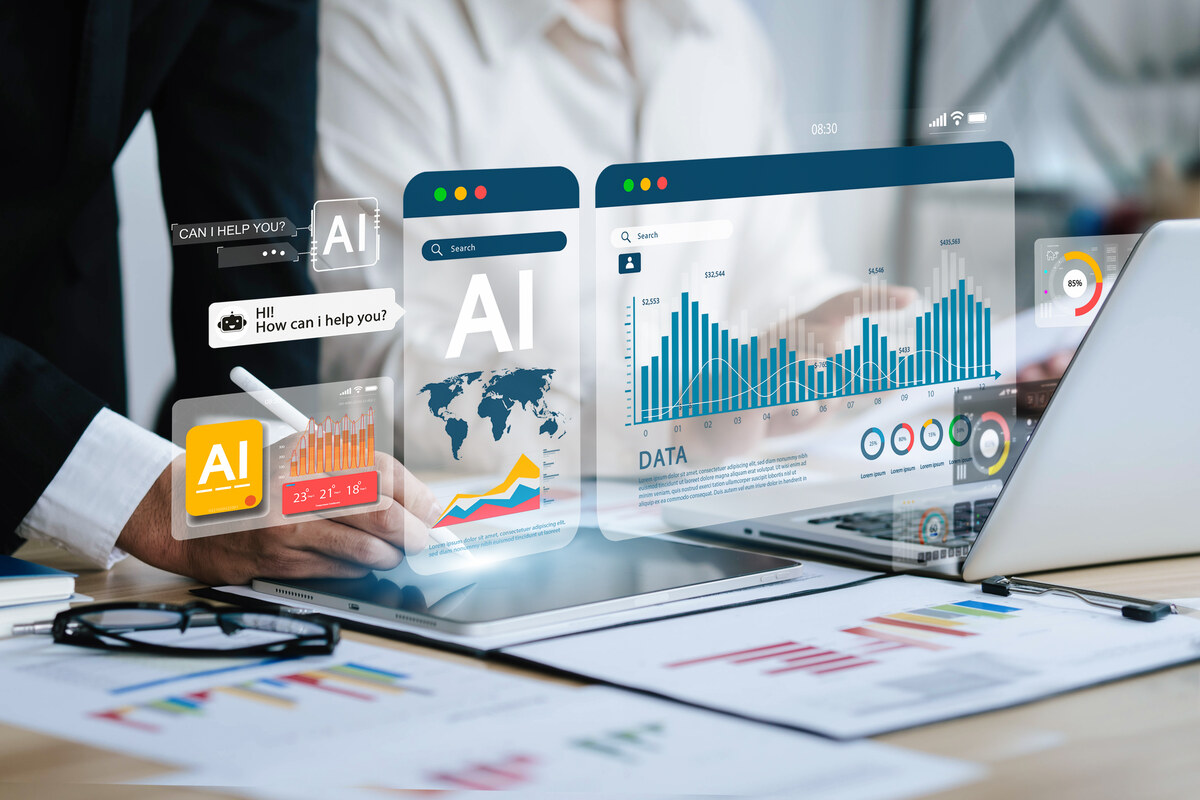
How to Implement AI into Digital Marketing?
Integrating AI into digital marketing is more accessible than ever, but it requires strategic planning and execution to realize its full potential. The first step is to identify areas within your marketing workflows that can benefit from AI enhancements. This includes processes like data analysis, customer segmentation, and personalized content delivery, as well as leveraging tools like an AI Writing Generator for creating engaging, tailored content. By assessing these areas, you can pinpoint where AI might optimize efforts, increase efficiency, and enhance customer experiences.
After identifying potential areas for AI integration, the next step is selecting the right AI tools that align with your marketing strategies. The market offers a plethora of AI solutions designed to augment various aspects of marketing, such as AI-driven analytics platforms, automated content creation tools, and customer service chatbots. A careful evaluation of these tools in terms of scalability, cost, and compatibility with your existing systems is crucial for a successful implementation.
Once the appropriate tools are selected, you need to focus on integrating these AI solutions into your existing marketing platforms. Smooth integration is vital to maintaining seamless operations across different marketing channels. It might involve developing APIs or employing middleware solutions to ensure the AI tools work harmoniously with current technologies. Training the marketing team to work alongside AI systems is also essential to maximize their effectiveness.
Finally, measuring the effectiveness and ROI of AI tools sets the stage for continuous improvement. By setting clear KPIs prior to implementation and routinely evaluating performance, you can determine the value of your AI marketing efforts. This assessment helps refine strategies and adapt AI tools, ensuring that your marketing remains effective and forward-thinking.
How Is AI Used in Digital Media?
The age of AI in digital media is no longer a distant future but a present reality, reshaping the landscape of content creation and distribution. AI’s integration into digital media offers innovative solutions that redefine how media content is produced, curated, and consumed.
Automating Content Creation and Curation
One of the most exciting prospects of AI in digital media is the automation of content creation. AI-driven algorithms are capable of generating content at incredible speeds, creating articles, blog posts, and even video scripts tailored to specific audiences. This function not only saves time but also enhances the quality of the content by ensuring consistency and relevance.
Enhancing Customer Interaction Through Chatbots
AI-powered chatbots have revolutionized customer interaction by providing instant responses and support. These chatbots can engage in complex conversations, learn from interactions, and personalize the user experience, fostering a more engaging environment for consumers.
Using AI for Personalized Advertising and Recommendations
In digital media, one size no longer fits all. AI facilitates personalized advertising, using data-driven insights to tailor recommendations and advertisements to individual preferences. This personalization increases engagement and conversion rates by delivering the right message to the right audience at the right time.
Implementing AI-driven analytics for Media Performance Tracking
AI-driven analytics have become indispensable for tracking and optimizing media performance. They offer detailed insights into consumer behavior, content popularity, and campaign effectiveness. These analytics allow companies to make data-informed decisions and strategically adjust their digital media strategies for maximum impact.
How AI Is Used in Marketing with Examples
In the dynamic realm of marketing, AI marketing examples offer a glimpse into how technology is reshaping the landscape. One of the most compelling applications is predictive analytics for customer behavior modeling. By harnessing vast amounts of data, AI tools forecast customer preferences and behaviors. This allows businesses to tailor marketing campaigns more precisely, thereby improving engagement rates and conversion case studies. Many retailers have successfully implemented these solutions to offer personalized suggestions, enhancing customer satisfaction and loyalty.
Automated email marketing campaigns with AI mark another significant advancement. AI enables the crafting and sending of emails that are not only automatically triggered by user actions but are personalized to the recipient’s preferences and past interactions. This increases open rates and engagement by delivering content that aligns with customer interests.
Social media marketers also benefit from AI through AI-driven social media engagement strategies. AI analyzes social media trends and audience sentiments, enabling brands to participate in relevant conversations at the right moments, ensuring their messages resonate more with target audiences.
Lastly, personalized customer experiences have been revolutionized through AI algorithms. These algorithms curate user experiences by adapting content and recommendations in real time, ensuring that each interaction feels bespoke and relevant. Companies in sectors like e-commerce and streaming services are seeing measurable improvements in user retention and satisfaction through these personalized experiences.
Will AI Take Over Digital Marketing?
Artificial Intelligence has undoubtedly become a pivotal force in digital marketing, offering unprecedented efficiency and innovation. One of the most transformative roles of AI is in strategic decision-making. AI algorithms can process vast amounts of data, recognize patterns, and generate insights that were once unfathomable, empowering marketers to make data-driven decisions with heightened accuracy.
While AI automation enhances many marketing tasks, it is essential to balance these innovations with human creativity. AI can streamline processes like data analysis or customer service, but the human touch remains crucial in crafting compelling narratives and emotional connections with customers. These unique creative insights often distinguish brands and ensure loyalty, which raw data and algorithms alone cannot achieve.
It’s important to recognize the challenges and limitations of AI in marketing. Issues like data privacy, ethical considerations, and machine learning biases necessitate careful oversight. Furthermore, excessive reliance on AI can lead to depersonalization of marketing messages if not monitored diligently, potentially alienating some consumers.
As AI continues to integrate into the marketing landscape, there is an evolving demand for new skill sets among marketers. Understanding AI technology, interpreting its insights, and creatively applying its tools are becoming crucial competencies. This AI-driven landscape calls for marketers to be agile learners and adaptable to the rapid pace of technological growth.
Harness the power of AI in your marketing endeavors with CoContent.ai. Our cutting-edge AI tools are designed to seamlessly integrate into your marketing strategies, enhancing both the efficiency and effectiveness of your campaigns. Create content that resonates with your audience effortlessly and stay ahead in the dynamic world of digital marketing. Try CoContent.AI for free!






